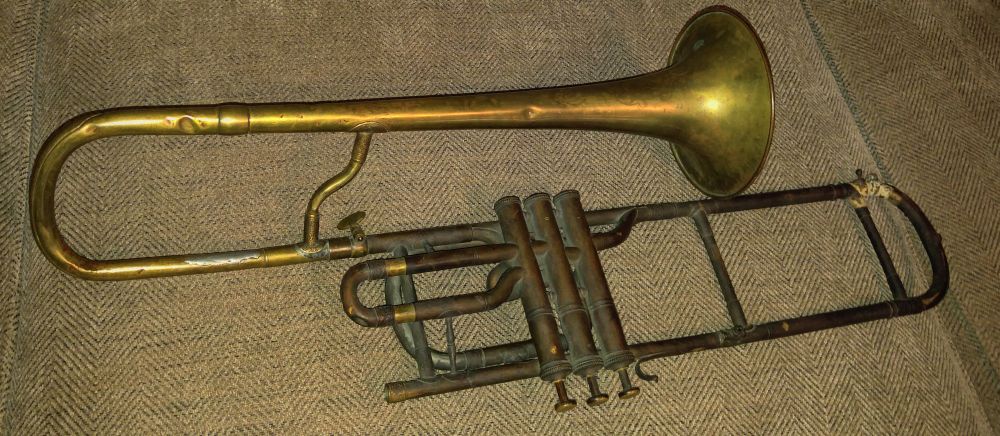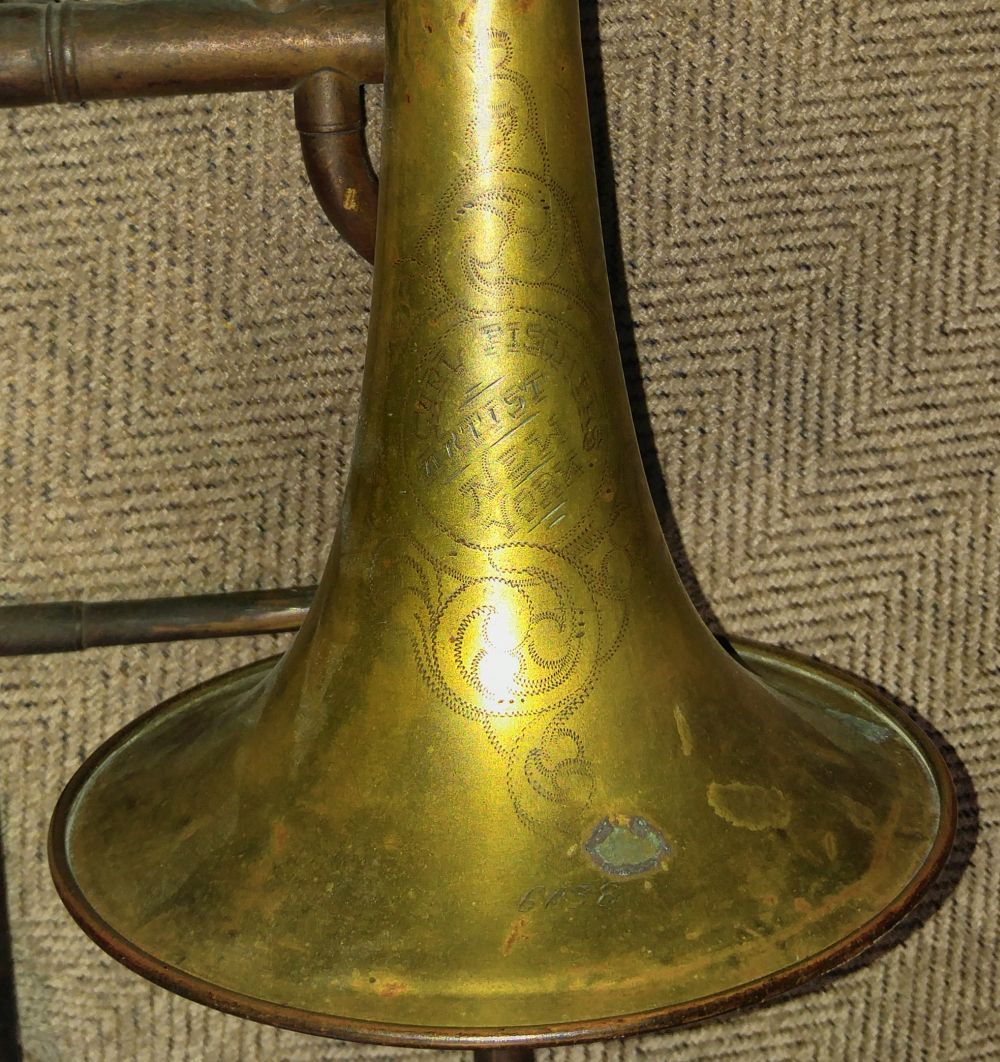My friend wants to know how old it is, any info about the manufacturer, and what it might be worth. The condition is not very good, it's missing the water key, with a fair number of dents and a lot of tarnish, but it certainly looks recoverable to me. I'm not sure you'd want to play this, but a collector might find some value in it. You see a lot of modern chinese reproductions of instruments like this on eBay.


